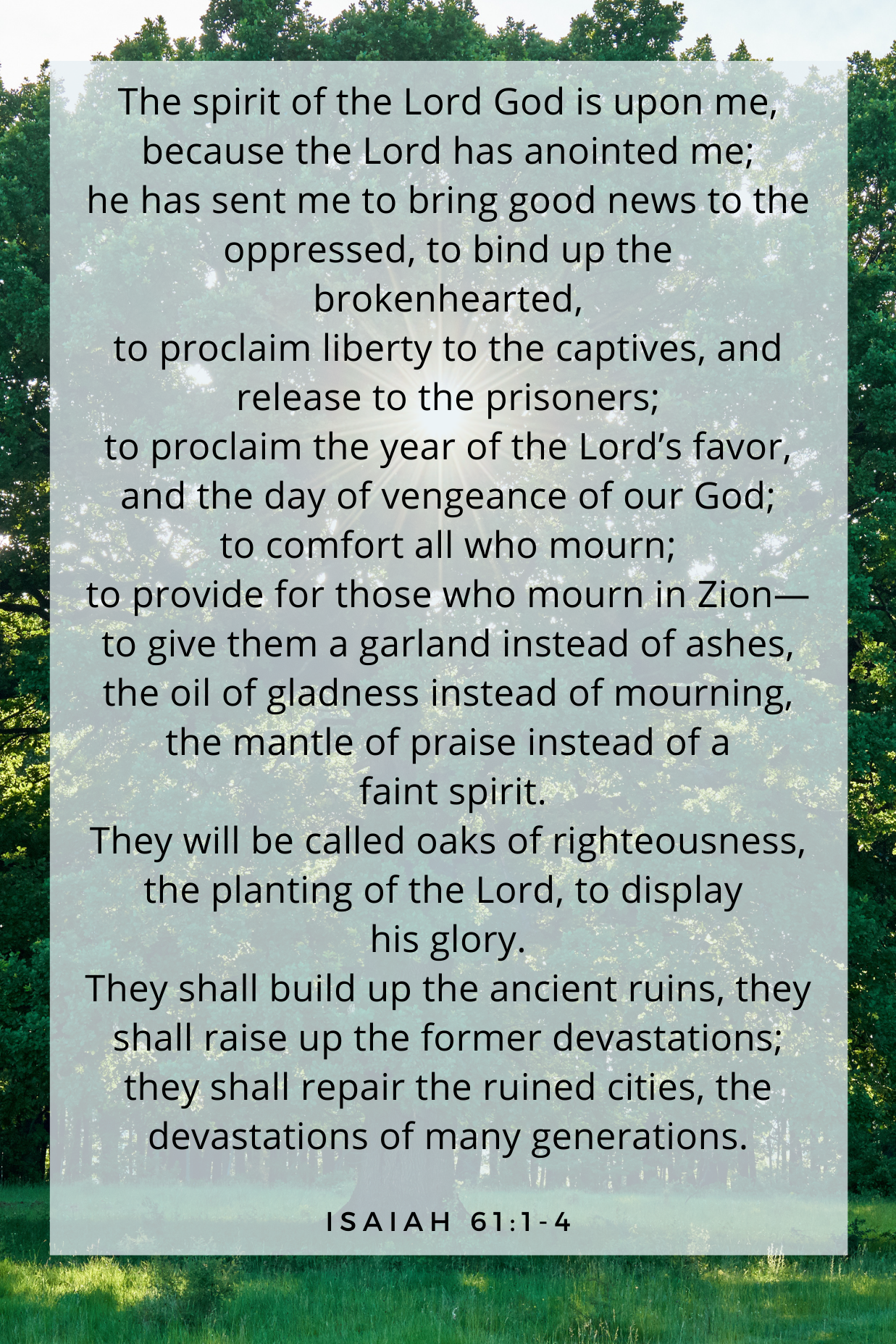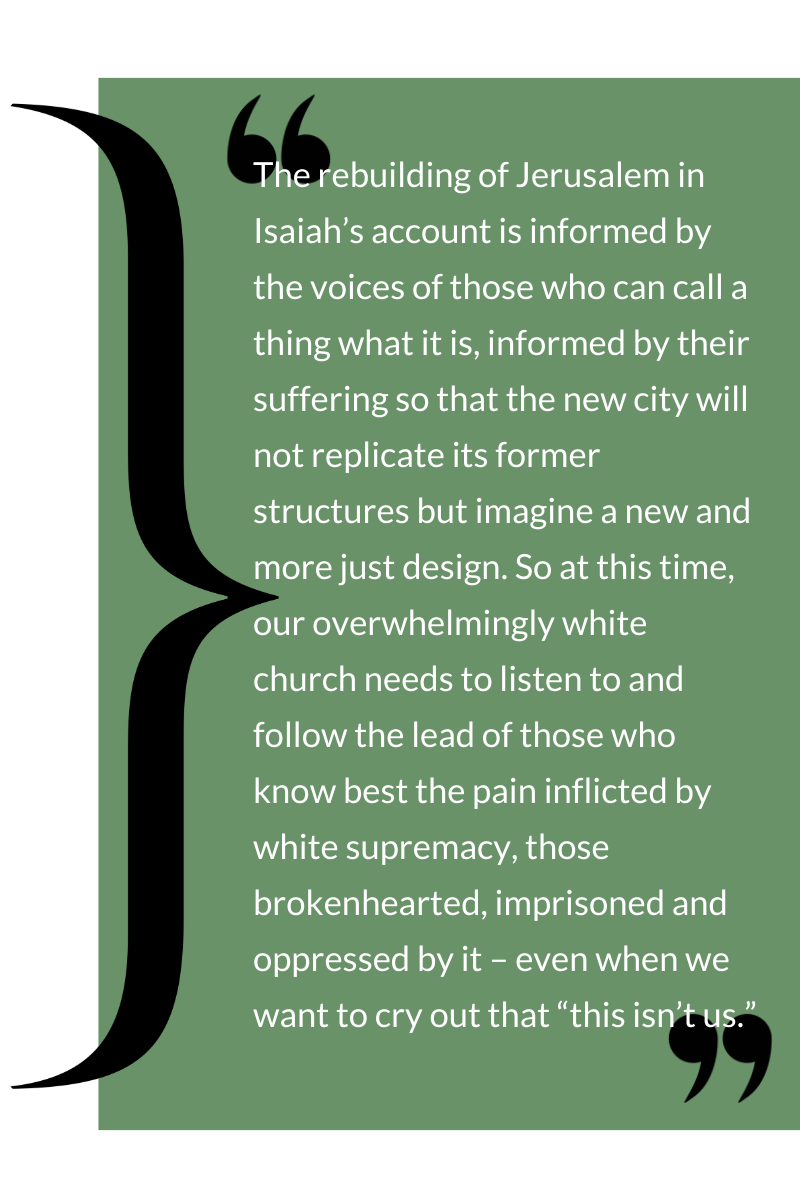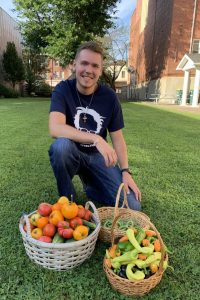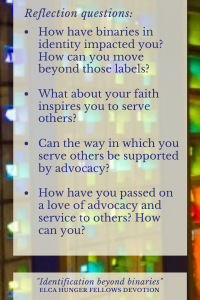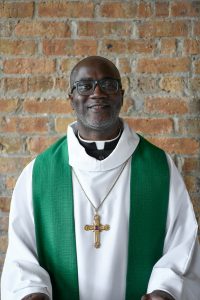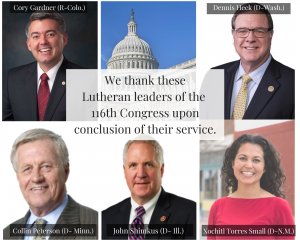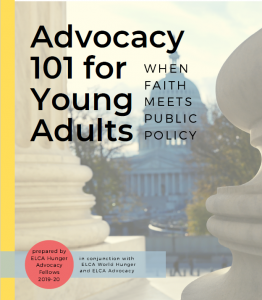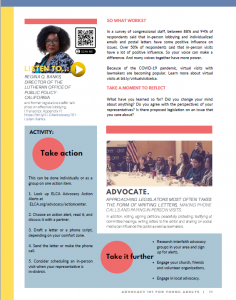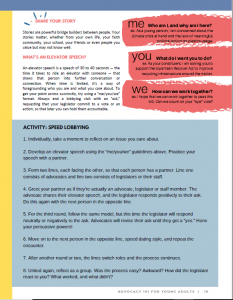Heather Hansen, San Antonio, TX
Warm-up Question
When have you had success getting someone to change their mind, selling them something, or convincing them of a new concept. What helped you do it?
Inviting Not Selling
Relevant Magazine online recently reported a list of 11 statistics that paint a striking picture of US consumerism. Here are a few of the 11, but to find the whole list, you can use this link:
1. Nearly 40% of food in America goes to waste.
2. Nearly half the world’s toys are in America.
3. The average American household has more than $7,500 in consumer debt while the median household
income in the global population is just over $9,700 (as of 2013, according to Gallup).
In a 2008 video called “The Virtue of Kindness,” one of the narrators shares a statistic which remains fairly unchanged 12 years later: The US is 6% of the world’s population and we use about 23% of the world’s resources.
Just coming out of the Christmas season, how do you feel about consumerism? Has Christmas become primarily a consumer cultural? Is it hard to stay focused amidst all the advertisements and marketing? I noticed this year that many commercials are about treating yourself, or at least treating yourself after you treat others. But isn’t giving someone a gift at Christmas supposed to be a meaningful show of love, like God’s gift of Jesus to us or the wisemen’s gifts to Jesus?
In 2018, the top 200 advertisers spent a collective $163,000,000,000 on marketing, according to businessinsider.com. Yes, you read that right. One-hundred-sixty-three BILLION dollars on marketing in ONE year. It’s no wonder we are such consumers. We are bombarded with verbal and visual ads everywhere we look— social media, TV, radio, billboards, and print. Consider what we could do with billions of dollars to care for the poor, the sick, or the stranger. We could develop better care and programs for the mentally ill or persons with disabilities, or boost education…the list goes on and on.
Because of our consumer culture, it’s not surprising that many people look at participation in a faith community or church the same way:
-Which church fits MY needs or the needs of my family?
-Which church has a coffee bar?
-Does my church worship at a time that I would like to worship, or should I find a new one that does?
-We are “church shopping.”
Of course, none of these things are necessarily bad. But how can we also make sure we aren’t merely “consuming” faith too? How can we be sure that our churches are not “selling us” an experience, rather than inviting us to be disciples? What does it mean to be a disciple? How do WE invite others into a relationship with God and with our neighbors without manipulation or a sales pitch? Because ultimately, Jesus isn’t for sale, and neither are our relationships.
Discussion Questions
- Based on these statistics, how do you feel about consumerism in America?
- Given what Jesus says in Luke 12:34 “For where your treasure is, there your heart will be also,” what is God teaching us about consumerism?
- When is going to church a faith practice and when is it consuming? In other words, how is participating in a faith community or church more than just filling satisfying our wants. Is there a difference between what we want and what we truly need? Is that difference important?
Third Sunday after Epiphany
(Text links are to Oremus Bible Browser. Oremus Bible Browser is not affiliated with or supported by the Evangelical Lutheran Church in America. You can find the calendar of readings for Year B at Lectionary Readings.)
For lectionary humor and insight, check the weekly comic Agnus Day.
Gospel Reflection
In Mark 1:14-20, Jesus calls and gathers his first disciples. Jesus tells these men, who are fishermen by trade, that he will make them “fishers of men,” or in other words, “fishers of people.” It seems like a relatively straightforward deal; I call you to follow me, and you call others to follow me (meaning Jesus). We use this story as a reference to how God wants us to invite and welcome people into our communities of faith. We use this story to understand part of the work of being a disciple of Christ.
However, isn’t it a little more complicated than what we hear in the gospel? Jesus walks up to these fishermen, calls out, “Follow me.” They lay down their nets and follow. But WHY?!?!?! If you were to walk up to someone in today’s world and tell them to just drop what they are doing and follow you, they would probably think you are crazy! Even if they didn’t think you were crazy, they would not likely follow. Moreover, in today’s cultural climate of marketing and consumerism, we’ve become particularly tuned in to wondering what people are trying to “sell” us and what’s in it for them. “Why should I follow you? What’s the catch? What’s in it for me? What’s in it for you?”
I’ve spent a lot of time in recent years inviting young people who do not go to church or have an interest in church to come. I’ve often heard that they just don’t see the point. These are exactly the people I feel God is calling me to invite into a faith community. However, finding ways to invite them and not make it “too churchy” or sound like a sales pitch has proven hard. Simply asking them to “follow me” doesn’t seem realistic either.
So I look to the gospel story and wonder, what does it mean to be a fisher of people? And how can I be a fisher of people without becoming a salesperson? A few things come to mind:
1. Jesus invites the disciples to follow AND tells them he will make them fishers of people. When we invite someone to come to church, we should be clear about what we are inviting them to and why. When you want to ask someone to share a special thing in your life, how do you ask them? What do you say? Developing a relationship with God different than just coming to church–and people need to know why.
2. The story doesn’t tell us is why these men just dropped their nets to follow. Did they KNOW Jesus? Was he an acquaintance? A stranger? Did they hate their jobs and see that Jesus offered something better? Had they heard that Jesus was proclaiming the good news of God? What would make someone in today’s world hear that the gospel is good news? Does knowing a person and hearing about what they are doing that is unique or special make a difference in whether someone follows?
3. Jesus doesn’t make a big fuss or spend a lot of time on the invitation. It’s simply an invitation. Sometimes, when we work too hard to convince someone, we begin to sound like a salesperson trying to sell something instead of simply inviting. Keep it simple. Just invite.
4. Finally, a fisherman knows that some days you catch a bunch of fish, and some days you don’t. And when you pull in the nets, some get away or never get caught in the first place. If we apply this to fishing for people, we remember that fishing for people isn’t about catching everyone or catching anyone in particular. It’s about the fishing itself, the inviting. God asks us to be faithful disciples and fish, but God doesn’t expect us to always make a catch. Additionally, if we get too caught up in trying to catch the fish we missed, we lose sight of those we’ve caught—and they may then slip away. Fishing for people is not about making a catch or a sale. It’s about extending an invitation to something which is life-giving, nourishing, sustaining, and filling. It’s about inviting someone deeper into a relationship. It’s about sharing the opportunity to experience God’s love with others.
Fishing for people is not about selling something. It’s not even about making a catch. The point of fishing for people is to throw out the net and gather people in who want to know how God is part of our lives. It’s about inviting people into hard, beautiful, merciful, forgiving, filling, comforting, beloved relationships; the things that being a disciple are all about. In our consumer world, fishing for people can sometimes feel like just another marketing scheme, but it doesn’t have to be that. After all, an invitation to a party is way better than an ad for another thing to buy.
Discussion Questions
- What’s the difference between inviting someone to follow Jesus and marketing your church or faith community?
- In today’s consumer society, why is it important to invite someone into a relationship with Jesus rather than “sell them Jesus”?
- What does it mean to you to be a fisher of people and why does God call disciples to be fishers of people?
- What are some ways you could fish for people rather than “sell them Jesus”?
Activity Suggestion
Role play a way you might “fish for people.”
If you need assistance, follow these steps:
a. Determine why your faith or your relationship with Jesus is important to you.
b. Think about a story you could share with others that describes why your faith or relationship with Jesus is special to you.
c. Practice sharing your story with a partner.
OR
After answering the discussion questions above, you may have come up with some different ways to fish for people yourself. Try these out in your role play. When you are finished with your role play, have your partner help you fine tune your invitation and explore other ways you might “fish for people.”
Closing Prayer
Jesus, our teacher, You have called us to follow you and made us fishers of people. Give us the courage to become the fishermen you ask us to be, and the faith to know how to share your love rather than sell someone on why they should believe in you. Equip us with the tools we need to extend your forgiveness, mercy and compassion to others, and gather in all those who are drawn to you. Amen.



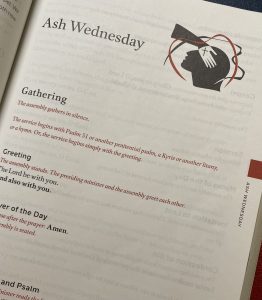 Repentance is at the core of Christian living (the first of Luther’s 95 Theses). During the season of Lent, we all become a “penitent” with ashes on the forehead, looking toward to the cross as a sign of God’s reconciliation with all creation (with the absolution on Maundy Thursday). Ashes appear throughout the Hebrew Bible as a sign of mourning and repentance, but Isaiah reminds us that such practices point to the larger call for justice (Isa. 58:5-6). These ashes are at the very beginning (“dust” in Genesis 3:19) and connect each of us to all of creation and to our own mortality.
Repentance is at the core of Christian living (the first of Luther’s 95 Theses). During the season of Lent, we all become a “penitent” with ashes on the forehead, looking toward to the cross as a sign of God’s reconciliation with all creation (with the absolution on Maundy Thursday). Ashes appear throughout the Hebrew Bible as a sign of mourning and repentance, but Isaiah reminds us that such practices point to the larger call for justice (Isa. 58:5-6). These ashes are at the very beginning (“dust” in Genesis 3:19) and connect each of us to all of creation and to our own mortality. The power of receiving the cross on our foreheads on Ash Wednesday is in the layering: there is a sign of sin and death traced and layered on top of the tracing in water and oil of the promise of life, rebirth, and liberation from sin and death. On Ash Wednesday, we feel the full weight of the ashy tracing. It does not negate or obliterate the liberating sign it is layered with, but it is a suitably tangible reminder of the reality of grief, loss, and death.
The power of receiving the cross on our foreheads on Ash Wednesday is in the layering: there is a sign of sin and death traced and layered on top of the tracing in water and oil of the promise of life, rebirth, and liberation from sin and death. On Ash Wednesday, we feel the full weight of the ashy tracing. It does not negate or obliterate the liberating sign it is layered with, but it is a suitably tangible reminder of the reality of grief, loss, and death. Most of my personal study and continuing education for the last several months has been focused on trauma-informed care, recognizing that living through the varied events of the last year affects not only our spirit but also our mind and body, and requires adaptations honoring this challenging new space. A best practice for trauma-informed care is to remember that significant stress and trauma are not just intellectual exercises. Our bodies respond to and reflect the events of the day. It may be using prayer beads or a finger labyrinth to make home worship feel more real or wrapping myself in a favorite sweater or soft blanket when I miss the comforting hugs of family and friends. Being mindful of how my body responds to grief and loss and finding ways to care for and comfort it has been both personally and professionally beneficial.
Most of my personal study and continuing education for the last several months has been focused on trauma-informed care, recognizing that living through the varied events of the last year affects not only our spirit but also our mind and body, and requires adaptations honoring this challenging new space. A best practice for trauma-informed care is to remember that significant stress and trauma are not just intellectual exercises. Our bodies respond to and reflect the events of the day. It may be using prayer beads or a finger labyrinth to make home worship feel more real or wrapping myself in a favorite sweater or soft blanket when I miss the comforting hugs of family and friends. Being mindful of how my body responds to grief and loss and finding ways to care for and comfort it has been both personally and professionally beneficial. Ash Wednesday marks the beginning of a journey when we remember Jesus’ ministry, his ability to heal and care for humanity, and at the same time, his passion, death, and overall, his glorious resurrection. In a “typical” year it might seem too soon to even talk about Easter on Ash Wednesday. However, I don’t know if that’s the case for 2021.
Ash Wednesday marks the beginning of a journey when we remember Jesus’ ministry, his ability to heal and care for humanity, and at the same time, his passion, death, and overall, his glorious resurrection. In a “typical” year it might seem too soon to even talk about Easter on Ash Wednesday. However, I don’t know if that’s the case for 2021.